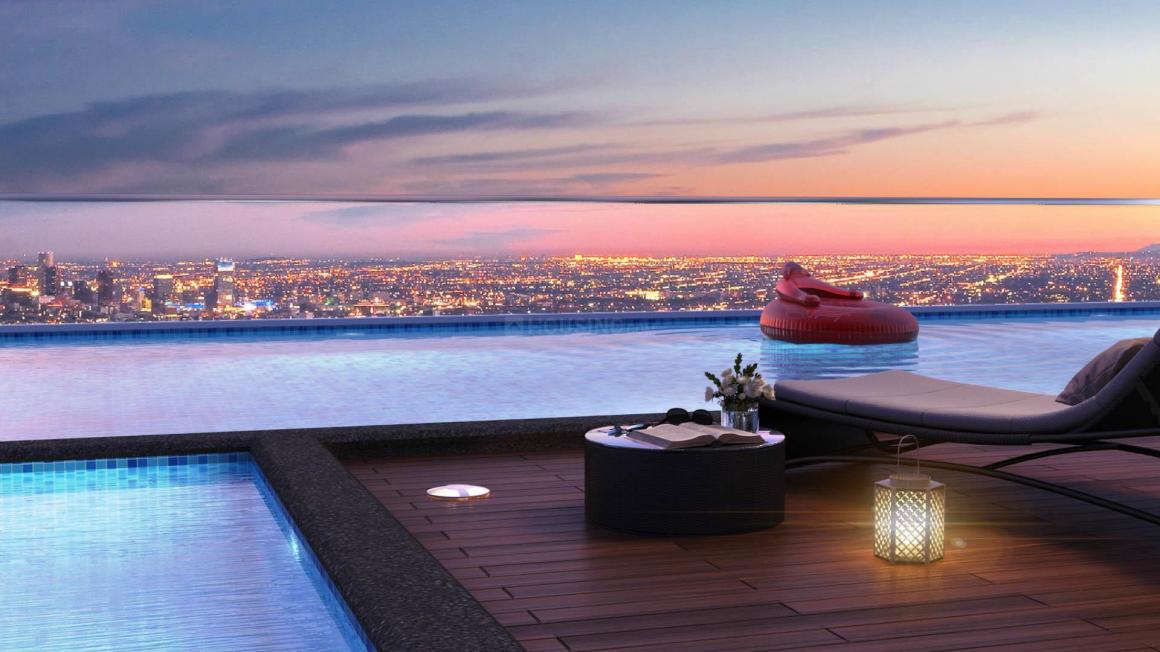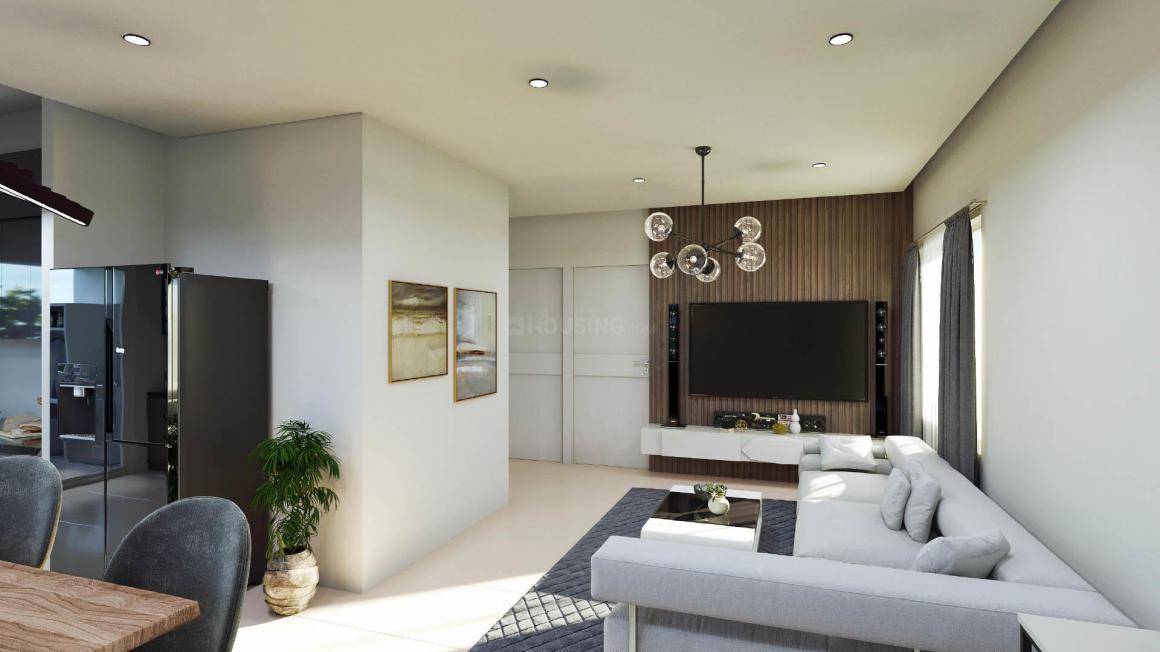Vastu shastra is a Vedic Indian technique for designing structures in accordance with natural principles and components. But have you ever wondered when or how it came into being? It all started with the creation of the Vastu Purusha Mandala in the ancient age. Let’s take a look at the interesting history of the Vastu Purusha Mandala, which originated from Vastu shastra and has its roots in the ideology. In this article, we will briefly discuss the significance and characteristics of the same.
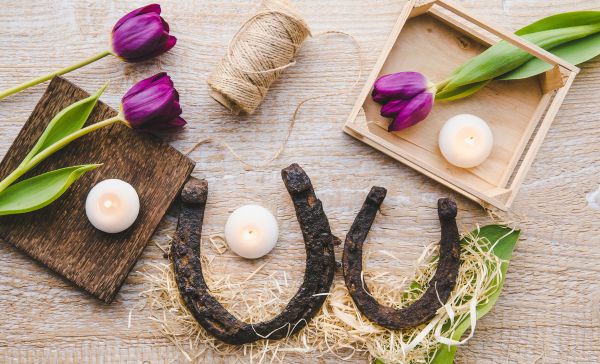
Things we covered for you
Vastu Purusha Mandala
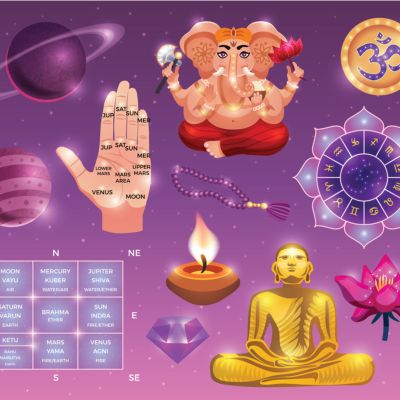
Let’s break down the terms. First, “Vastu” or the Vastu Shastra is an ancient architectural science based on the five natural elements. “Purusha” refers to the cosmic man, energy or the soul. We will elaborate on this later in the article. “Mandala” refers to a comprehensive chart that breaks down the universe into several small sections. Each section has its characteristic energy that collates together to maintain peace and harmony in the home.
Read: Does Vastu Matter When You’re Buying a House?
Formally the Vastu Purusha Mandala is defined as one of the many (read, five) principles that you can use to guide the architecture and design of any building, albeit with the correct measurements.
What Is the Vastu Purush Yantra?
It is a slab of 24k gold-plated pyramid which has a metaphysical diagrammatic representation of the cosmos or the universe. You can keep this in ready-to-move-in apartments, which aren’t precisely Vastu-friendly. Keeping this at home helps ward off Vastu’s flaws and ensures positivity.
The Origin of Vastu Purusha Mandala
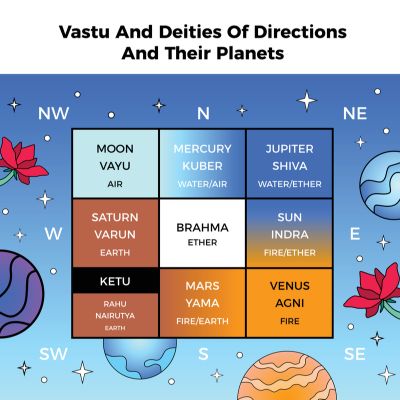
As with every ancient Hindu mythology, there are several stories behind the origin of the Vastu Purusha. However, the most commonly accepted story is based on the ancient scripture of Mayamatam.
It goes something like this- thousands of years ago, Lord Brahma, the creator of the universe, wished to bring life to earth. His divine experimentation created a giant, cosmic man who was constantly growing. His insatiable hunger led him to grow exponentially, so much so that he cast a permanent giant eclipse onto the earth, which blocked the sun’s rays. This caused Brahma and the other gods to panic. Realising the gravity of the situation, Brahma sought help from the Ashta Dikpalakas (guardian Gods of the eight cardinal directions). It took 45 gods to overpower this growing monster.
They pushed and held him flat against the surface diagonally to contain him. At that time, his head was facing the north-east, and his legs were facing the south-west. As the cosmic spirit begged for mercy, he was made immortal. Brahma gave him a boon that from now on, anyone who constructs a building will have to pay their respects to the Vastu Purusha.
To this day, in India, people have been paying due respect to the house Vastu Purusha wishing to ensure peace and prosperity.
Where To Place Vastu Purusha in House

Now you might wonder what the benefit of having a suitable Vastu Purusha position at home is. Let us explain. The Vastu teaches that the sun is the ultimate source of energy on the earth. Therefore, we use certain rooms more commonly during the day than the others. Keeping this in mind, the Vastu Shastra helps ensure that each room gets maximum exposure to sunlight when they are most commonly used.
Read: Vaastu Animals for Home and Their Benefits
Vastu Purusha Direction in the House
The Vastu mandala divides one solar day (24 hours) into eight different parts guarded by various Gods. Each of these parts represents the cardinal directions the sun faces during other times of the day. Let’s take a room-by-room tour.
Puja Room or the Meditation Area
This should ideally be in the northeast. 3 am-6 am the “Brahma muhurta” during which the sun is in the northeast. Since the atmosphere is serene and peaceful, this is the perfect time for activities that need concentration, such as study, meditation and worship. This direction gets the first rays of sunshine and symbolises the beginning of the day.
Bathroom, Doors and Windows
From 6 am to 7:30 am, the sun is in the east. So, if your bathrooms, doors and windows are in this direction, they will get plenty of sunlight. Plus, if you are an early riser, you might be getting ready for the day at this hour and having lots of doors and windows means unobstructed sunlight at the beginning of the day, which brings a burst of positive energy to the morning.
Read: Real Estate Fortune in The Year of The Rat 2024

Kitchen

This should ideally be in the southeast corner of the house. From 7.30 am to 9 am, it is the best time to prepare food. In addition, the sun’s UV rays fall directly into this direction during this time of the day and help keep your kitchen germ-free. Natural disinfection, anyone?
Bedroom, Office Area and Storeroom
This is the time when you should work. This period between 9 am to noon is the part of the day when we are usually most productive (no, we are NOT talking about the night owls here!). By this time, the sun is in the South, which is the best position for the placement of these rooms.
Master Bedroom and Wardrobes
They should ideally be in the southwest position. It is because the sun veers in this direction between 12-3 pm. According to the Vastu mandala, this period is also known as the Vishranti period. At this time, you relax and rest after lunch. That is why your bedrooms and wardrobes should be on the west wall to reduce heat.
Children’s Bedrooms, Study Rooms and Bathrooms
Ideally, the time between 3 pm-6 pm is the best time for study. During this time of the day, the sun is in the west. Therefore, children’s study areas and bedrooms should ideally be in this direction. If you don’t have children, try to place less-used rooms like toilets in this house section.
Second Bedroom and Dining Room
Between 6 pm to 9 pm, the sun is in the northwest position. Therefore, it is ideal for catching up with the rest of the family, relaxing and having a nice dinner. Because of their status, the rooms in this section of the house remain relaxed and comfortable. Hence, this is the perfect spot to place your dining room and second bedroom.
Safety Lockers and Living Room
Between 12 am to 3 am, the sun remains hidden in the northernmost direction. You can say this direction almost symbolises darkness and secrecy. That’s why placing lockers in this direction is recommended because it is safe. Now we are not talking about the occasional all-nighters or the weekend movie sessions, but living rooms remain mostly unused during this time of the day, and hence this is an ideal spot.
Vastu Purusha Mandala Architecture
You must have read in elementary geography that the earth comprises the five elements or the Panchabhutas, namely
- Sky (Akasha)
- Air (Vayu)
- Water (Jal)
- Fire (Agni)
- Earth (Prithvi)
Vastu Shashtra believes that all humans are made up of a combination of these elements. All these factors, along with the earth’s inherent magnetic and energy fields, contribute to developing an inclusive architecture that helps create the most beneficial environment for the home. According to Vastu, different rooms are designed and placed; it ensures optimal lighting and good ventilation and gives the family members much needed privacy.
As discussed above, the Vastu Purusha Mandala is a comprehensive chart that divides the earth (or, in this case, the plot) in square divisions. Each of these equitable divisions is guarded by 45 gods, some of which protect your internal aspects (internal god) while the others help defend you in external factors (external god).
The central portion of the house (or plot) is presided over by Lord Brahma. Vastu states that this is the primary source of energy that regulates the energy flow across your home. Therefore, it is best not to mess with this area.
Vastu Purusha Mandala: The various Elements, Divine beings, and Deities
45 deities positioned in various locations atop Vastu Purusha vanquished Vastu Purusha. The names of the directions and forces derive from the fact that each component was made of gold by its associated God. There are 32 gods on the outside side of the Vastu Purusha Mandala, whereas only 13 gods are on the interior side to control man. As per Vastu Purush for home, the existence of these gods increases the quality of your life and brings energy to your day-to-day existence.
The Vastu Purusha Mandala is used to avoid offending the deities in the region while constructing a dwelling. The deities will reward you with prosperity, health, and a joyful lifestyle for eternity if you follow the 9×9 chart/ the Vastu 9 divisions rule to the letter. What is the teaching of the Shastra? Well, Panchabhuta or the Five Elements, according to Vastu Shastra, compose the whole cosmos.
Vastu Purush Image
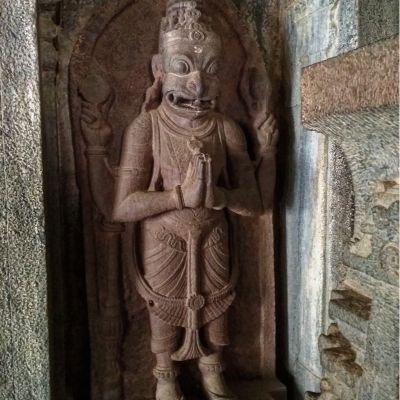
To believe or not to believe is totally up to you. However, one cannot refute the logic behind the placement of rooms as described in the Vastu Purusha Mandala. After all, there is nothing wrong with following some routine if it helps maintain peace in the family, correct? For more Vastu tips, you can visit our page. Are you still confused? Give a call to our Vastu experts, who will advise you to adopt this age-old practice even in modern apartments. Just click on the below link to find Vastu orientated houses.
FAQ’s
Ans. It helps you plan your house to get optimal sunlight and promote peace and prosperity in the household.
Ans. Modern apartments come pre-built, and there’s not much you can do. However, keeping a Vastu yantra helps correct the flaws in your house.
Ans. Doors and windows should ideally be placed in the direction which receives the first rays of the sun. Therefore, the east corner is a good Vastu Purusha position in the home for doors and windows.
Ans. Ideally, your kitchen should be placed in the southeast corner of your house.
Ans. If you look closely, Vastu mandala architectural tenets do make a lot of sense. However, it is impossible to follow everything to the T because the modern lifestyle is very different from what it was in ancient times.








